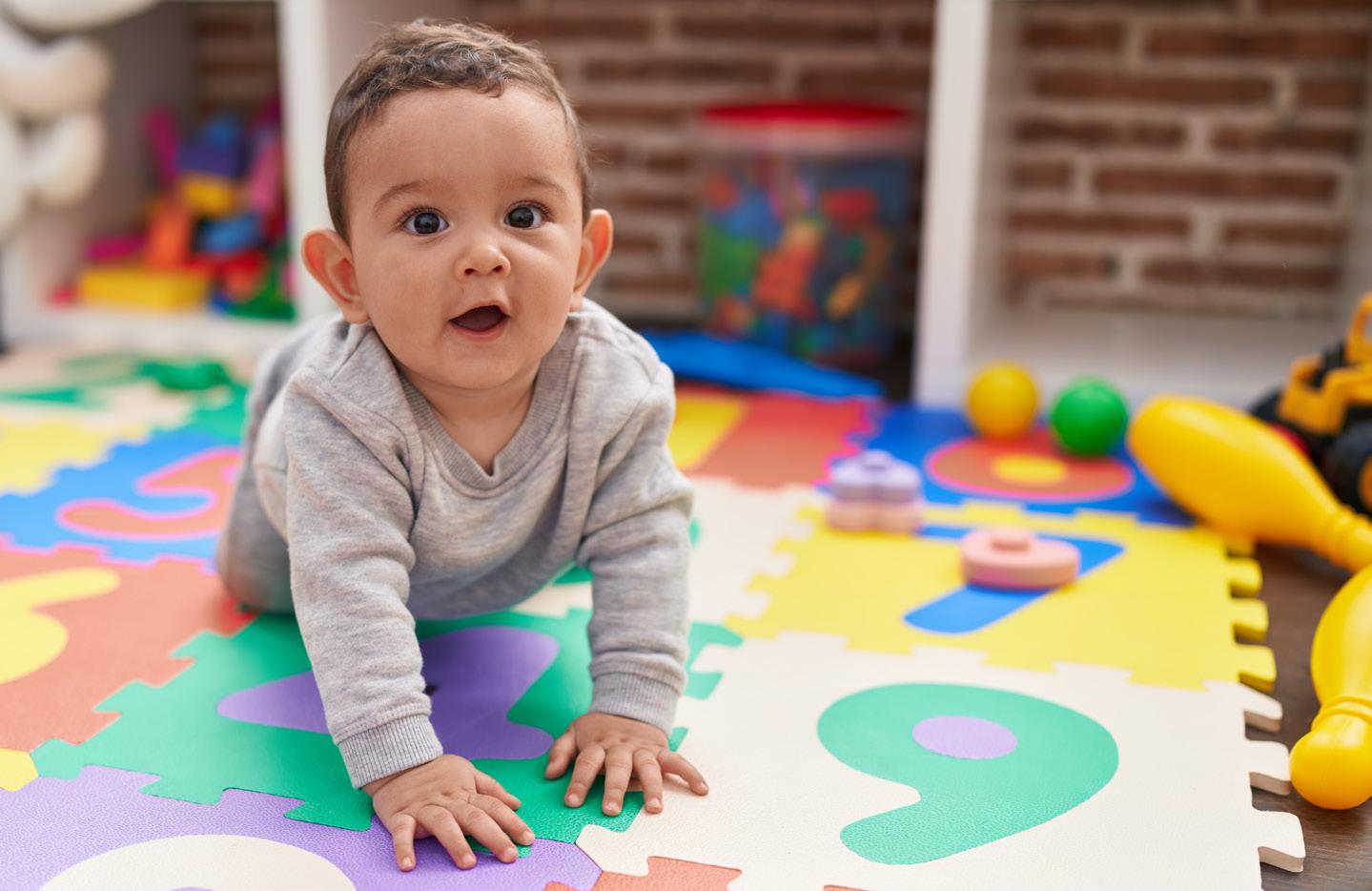
2 minute read
Signs Your Toddler Might Have ADHD
Spotting ADHD early can ensure children with the condition get the help they need sooner rather than later.
But how can parents know if the behavior they're seeing in their child is a sign of attention deficit hyperactivity disorder or merely the mercurial mood and behavior swings of a toddler?
Advertisement
An expert at the Kennedy Krieger Institute in Baltimore offers some guidance.
"Research shows that children with ADHD have abnormal brain development, meaning that ADHD has a biological basis that often makes it a lifelong condition," Mark Mahone, director of neuropsychology, said on the institute's website. "We want to catch ADHD early because it has such a profound effect on learning and academic development. Chil- dren whose symptoms begin in early childhood are at the highest risk for academic failure and grade repetition."
The team at Kennedy Krieger was among the first to study preschoolers' brains for signs of ADHD using neuroimaging. The researchers found that children with ADHD have a smaller caudate nucleus, a brain structure associated with thinking skills and motor control.
Up to 40% of children have significant attention problems by age 4. ADHD is the most common mental health disorder among preschoolers. About one in 11 school-aged children have an ADHD diagnosis.
Mahone encourages parents to pay close attention to their toddler's behavior.
Look for these specific signs: Your child dislikes or avoids activi- social events into my calendar. Life felt better!
Part of what motivates me when I find myself in a slump is a passage I found in a sweet little book called “Living Alone and Lovin’ It,” by Barbara Feldon.
In one particularly helpful chapter on loneliness, she recounts a heart-to-heart she had with an “older and very wise friend” named Leo. She was brooding about being lonely and shared how much she wanted to feel loved and protected again, the way she felt when she was a child.
Leo responded quite bluntly: “But you’re not a child and don’t have a child’s needs. A child is in danger without company because it’s helpless, but an adult has access to any need imaginable: food, medicine, companionship. All an adult has to do is pick up the phone…”
Good friends can be such a help! Especially when they tell it like it is. Barbara was energized by Leo’s no-excuses straight talk, and indirectly so was I. As adults, we can exercise choices; we can choose to stay in a slump or choose to pick up the phone.

My prediction should you start to reach out? Little by little your world will expand, with one connection spawning another, and another, and yet another.
Before you know it, your feelings of loneliness will lessen and you'll be on your way to banishing the summertime blues!
Gwenn Voelckers is the founder and facilitator of Alone and Content, empowerment workshops for women and author of “Alone and Content,” a collection of inspiring essays for those who live alone. For information about her workshops, to purchase her book, or invite her to speak, visit www. aloneandcontent.com ties that require paying attention for more than one or two minutes. He or she loses interest and moves on to something else after only a few moments.
Talking a lot more and making more noise than other children of the same age can also be an indicator. So, too, can climbing on things when told not to do that.
Children with ADHD may not be able to hop on one foot by age 4. They are nearly always restless, constantly twisting in a seat or kicking their feet. They insist they must get up after being seated for just a few minutes.
Kids with ADHD may warm up to strangers too quickly or fearlessly get into dangerous situations. They can be aggressive with playmates or get injured by moving too fast.
"If parents observe these symptoms and have concerns about their child's development, they should consult with their pediatrician or another developmental expert," Mahone said. "There are safe and effective treatments that can help manage symptoms, increase coping skills and change negative behaviors to improve academic and social success."










